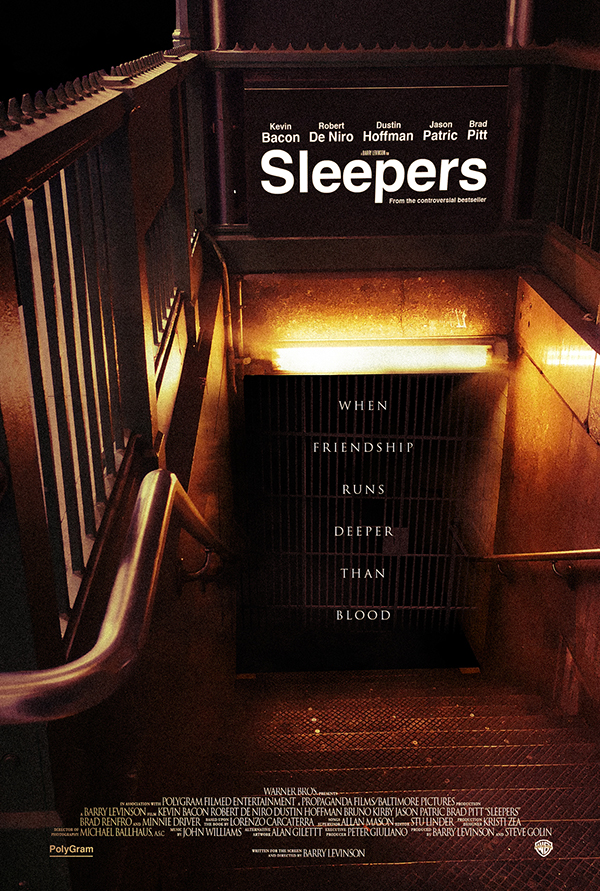Sleepers For Pickup Trucks For Sale: Your Ultimate Guide to Mobile Living and Adventure pickup.truckstrend.com
The open road calls, the wilderness beckons, and the desire for freedom from traditional accommodations grows stronger by the day. For pickup truck owners, a unique solution has emerged that blends the utility of a truck with the comfort of a mobile living space: the pickup truck sleeper. More than just a shell, these ingenious setups transform your trusty workhorse into a versatile home-on-wheels, perfect for weekend warriors, seasoned overlanders, remote workers, or anyone seeking a flexible, cost-effective way to travel and live.
This comprehensive guide will delve deep into the world of sleepers for pickup trucks, exploring what they are, why they’re becoming so popular, the different types available, crucial buying considerations, and where to find your ideal mobile sanctuary. Whether you’re dreaming of off-grid adventures or simply need a comfortable place to rest after a long day’s work, understanding the landscape of pickup truck sleepers for sale is your first step towards unlocking unparalleled freedom.
Sleepers For Pickup Trucks For Sale: Your Ultimate Guide to Mobile Living and Adventure
What Exactly Are Pickup Truck Sleepers?
At its core, a pickup truck sleeper is any structure or setup designed to provide a comfortable, secure, and often weatherproof sleeping and living area within or atop the bed of a pickup truck. Unlike a conventional RV, which is a separate vehicle, a truck sleeper integrates with your existing truck, offering a more compact, maneuverable, and often more capable off-road solution.
These aren’t just simple sleeping bags thrown in the truck bed. Modern sleepers range from sophisticated, fully equipped slide-in campers to custom-built platforms within a truck topper. Their primary function is to offer a dedicated space for rest, but many also incorporate features for cooking, storage, and even basic hygiene, making them miniature mobile homes tailored to the adventurous spirit.
Why Consider a Pickup Truck Sleeper?
The appeal of pickup truck sleepers is multi-faceted, drawing in a diverse range of individuals and families. Here are some compelling reasons why they’ve surged in popularity:
- Unmatched Versatility: A sleeper allows your truck to remain a truck for daily duties, while transforming into an adventure vehicle when needed. This duality is a significant advantage over dedicated RVs.
- Cost-Effectiveness: Compared to purchasing a full-sized RV or relying on hotels and motels, a truck sleeper can be a significantly more economical way to travel and explore. Initial investment is often lower, and ongoing costs like fuel and maintenance are typically less.
- Go Anywhere Capability: With the right truck (4×4, good ground clearance) and a well-matched sleeper, you can access remote campsites, trailheads, and off-grid locations that larger RVs simply cannot reach.
- Compact & Maneuverable: Navigating tight trails, city streets, or crowded campgrounds is far easier with a truck and sleeper than with a cumbersome RV. Parking is also less of a headache.
- Security & Comfort: Sleeping inside a secure, weatherproof structure offers peace of mind and protection from the elements, wildlife, and curious onlookers, far superior to tent camping.
- Freedom & Flexibility: No more searching for hotel vacancies or adhering to campground schedules. You dictate your itinerary, stopping wherever and whenever inspiration strikes.
- Ideal for Various Lifestyles: From weekend adventurers and rock climbers to digital nomads, construction workers needing on-site rest, or even disaster relief volunteers, the utility of a truck sleeper is immense.


Types of Sleepers For Pickup Trucks
The market for truck sleepers is diverse, offering options to suit various budgets, needs, and levels of comfort. Understanding the primary categories is crucial for making an informed decision.

Truck Bed Campers (Slide-in Campers):
These are standalone units that slide into the bed of your pickup truck. They are generally the most feature-rich option, often resembling miniature RVs.- Hard-Sided Campers: These offer rigid walls, excellent insulation, and robust construction. They typically include more amenities like built-in kitchens, bathrooms (wet baths), dinettes, and larger sleeping areas. They are heavier and more expensive but provide maximum comfort and four-season capability.
- Pop-Up Campers: Featuring a rigid base and roof with collapsible fabric sides, pop-ups offer a lower profile for better aerodynamics and off-road clearance when closed. When deployed, they provide ample headroom. They are lighter than hard-sided units, more fuel-efficient, and often better suited for off-roading. Amenities are usually more basic but can still include stoves, sinks, and seating.
-
Truck Topper/Shell Conversions:
This category involves modifying a standard truck topper (also known as a truck cap or shell) to create a sleeping space.- Basic Sleeping Platform: The simplest and most budget-friendly option. This involves building a raised platform inside a standard truck topper, providing a flat surface for sleeping with storage underneath. It’s often a DIY project, allowing for customization.
- Integrated Sleeper Toppers: Some manufacturers now offer toppers specifically designed with integrated sleeping platforms, built-in storage, and sometimes even lighting or power outlets. Brands like Go Fast Campers (GFC), AT Overland, and Super Pacific are popular in the overlanding community for their lightweight, rugged designs that incorporate rooftop tents or pop-up functionality into a cap.
-
Custom/DIY Builds:
For those with a knack for carpentry and a desire for ultimate personalization, a DIY build is a rewarding path. This involves designing and constructing your own sleeping platform, storage, and amenities within a standard truck bed or topper.- Pros: Complete customization, significant cost savings, sense of accomplishment.
- Cons: Requires time, skills, tools, and can lead to issues if not properly engineered (e.g., weight distribution, structural integrity).
Key Considerations When Buying a Sleeper
Purchasing a pickup truck sleeper is a significant investment. Careful consideration of several factors will ensure you choose the right fit for your needs and truck.
-
Budget:
- New: Prices can range from $2,000 for a basic topper to $10,000-$20,000 for pop-up campers, and upwards of $30,000-$50,000+ for premium hard-sided slide-in campers.
- Used: Offers significant savings, with prices varying widely based on age, condition, and features. You might find a used pop-up for $5,000-$15,000 or a hard-sided unit for $10,000-$30,000.
- DIY: Can be done for a few hundred dollars to a few thousand, depending on materials and amenities.
-
Truck Compatibility (Payload Capacity & Bed Size):
This is paramount for safety and performance.- Payload Capacity: Every truck has a maximum payload capacity (found on the door jamb sticker or in the owner’s manual). This is the absolute maximum weight your truck can carry, including passengers, cargo, and the sleeper itself. Never exceed this limit. Truck campers, especially hard-sided ones, are heavy. You might need a heavy-duty (2500/3500 series) truck for larger units.
- Bed Size: Sleepers are designed for specific truck bed lengths (e.g., 5.5 ft, 6.5 ft, 8 ft). Ensure the sleeper’s dimensions match your truck’s bed.
- Suspension Upgrades: For heavier sleepers, consider suspension upgrades like airbags, heavier leaf springs, or upgraded shocks to maintain ride height, stability, and handling.
-
Features & Amenities:
What level of comfort and convenience do you need?- Insulation & Climate Control: Essential for comfort in extreme temperatures. Look for good insulation, ventilation (fans, windows), and potentially an integrated heater or AC.
- Power System: Solar panels, battery banks (lithium preferred), inverters for AC power are crucial for off-grid living.
- Water & Plumbing: Fresh and grey water tanks, sinks, and potentially a toilet or outdoor shower.
- Kitchenette: Stove, refrigerator/cooler, sink.
- Storage: Ample and well-organized storage for gear, clothing, and food.
- Sleeping Arrangement: How many people need to sleep comfortably?
-
New vs. Used:
- New: Offers warranties, the latest features, and peace of mind. Higher initial cost.
- Used: Significant cost savings, but requires thorough inspection. Look for water damage, mold, structural integrity issues, and test all appliances. Private sellers, RV dealers, and online marketplaces are good sources.
-
Weight Distribution and Center of Gravity:
Proper loading is essential. Ensure the weight is evenly distributed and not too high, which can affect stability, especially off-road or in crosswinds.
Where to Find Sleepers For Pickup Trucks For Sale
The market for truck sleepers is vibrant, offering numerous avenues to find your ideal unit.
- Specialty Manufacturers & Dealerships: For new truck bed campers (slide-ins) and high-end topper conversions, direct purchase from manufacturers or their authorized dealers is common. Examples include Four Wheel Campers, Lance Campers, Adventurer, Scout Campers, AT Overland, Go Fast Campers, Super Pacific, Leer, ARE.
- Online Marketplaces:
- RVTrader.com, RVUSA.com: Excellent resources for both new and used truck campers. You can filter by type, make, and location.
- Craigslist & Facebook Marketplace: Great for finding local private sales of all types of sleepers, especially used truck toppers and DIY builds. Be cautious and arrange safe viewing locations.
- eBay: Can sometimes yield unique finds, but often requires shipping.
- Overland Classifieds / Forums: Websites and forums dedicated to overlanding and truck camping often have classified sections where enthusiasts sell their setups (e.g., Expedition Portal, Tacoma World, F-150 Forum).
- Local RV Dealerships: Many RV dealerships also carry a selection of new and used truck campers.
- Auctions: Government surplus auctions or public auctions can sometimes offer deals, but units are often sold as-is.
- Word of Mouth: Networking within the truck camping or overlanding community can sometimes lead to private sales.
Tips for Buying a Used Sleeper
Buying used can save you thousands, but it requires diligence.
- Thorough Inspection is Key:
- Water Damage/Leaks: This is the biggest killer of RVs and campers. Look for water stains, warped wood, mold, musty smells, or soft spots in the floor, ceiling, or walls. Check around windows, vents, and seams.
- Structural Integrity: Inspect the frame, roof, and floor for cracks, damage, or signs of collision.
- Appliances: Test everything: stove, refrigerator, furnace, water heater, pump, lights, and electrical outlets.
- Plumbing: Check for leaks in pipes and tanks. Fill and drain water tanks.
- Pop-Top Mechanism (if applicable): Ensure it raises and lowers smoothly, and the fabric is free of rips or significant wear.
- Exterior: Look for cracks, delamination, or significant dents.
- Verify Payload: Confirm the camper’s dry weight and estimated loaded weight against your truck’s payload capacity. Don’t just trust the seller’s word; look up the manufacturer’s specs.
- Check Title and Registration: Ensure the seller has a clear title and that the VIN matches the paperwork.
- Ask Questions: Don’t be afraid to ask about its history, maintenance, any previous issues, and why they are selling.
- Bring a Friend: A second pair of eyes can spot things you might miss.
- Negotiate: Always be prepared to negotiate the price, especially if you find issues during inspection.
Representative Price Table for Sleepers For Pickup Trucks For Sale
Prices are highly variable based on brand, condition, features, and location. This table provides a general range.
| Type of Sleeper | New Price Range (USD) | Used Price Range (USD) | Key Features & Considerations |
|---|---|---|---|
| Basic Truck Topper w/ DIY Platform | $1,000 – $3,000 | $500 – $2,000 | Cheapest entry. Requires manual build. Minimal amenities (just sleeping space & storage). Good for budget-conscious or weekend use. |
| Integrated Sleeper Topper (e.g., GFC, AT Overland) | $8,000 – $20,000 | $6,000 – $15,000 | Lightweight, low profile. Often includes pop-up tent, integrated storage, modular design. Excellent for overlanding/off-roading. Limited interior standing room when closed. |
| Entry-Level Pop-Up Truck Camper | $15,000 – $25,000 | $8,000 – $18,000 | Good balance of comfort & off-road capability. Basic kitchenette, limited water/power. Good for solo/duo travelers. |
| Mid-Range Pop-Up Truck Camper | $25,000 – $40,000 | $15,000 – $30,000 | Better insulation, more robust construction, more amenities (larger fridge, furnace, small water tank). Popular for longer trips and varied climates. |
| Entry-Level Hard-Sided Truck Camper | $20,000 – $35,000 | $10,000 – $25,000 | More rigid structure, better insulation, but heavier. Often includes a wet bath (toilet/shower combo), full kitchen. Requires a heavier duty truck. |
| Premium/Off-Grid Hard-Sided Truck Camper | $35,000 – $60,000+ | $25,000 – $45,000+ | Top-tier features: large tanks, solar, advanced electrical, luxury finishes, four-season capability. Significant weight, typically requires 3/4-ton or 1-ton truck. |
Frequently Asked Questions (FAQ)
Q: Do I need a special truck to carry a sleeper?
A: While most pickup trucks can handle a basic topper with a sleeping platform, heavier slide-in campers often require a heavy-duty truck (e.g., Ford F-250/350, Ram 2500/3500, Chevy Silverado/GMC Sierra 2500/3500) due to their higher payload capacities. Always check your truck’s specific payload limit.
Q: How much do truck sleepers weigh?
A: Weight varies greatly. A basic topper might add 150-300 lbs. Integrated sleeper toppers range from 250-600 lbs. Pop-up truck campers typically weigh 800-1,500 lbs (dry). Hard-sided truck campers can weigh anywhere from 1,500 lbs to over 3,000 lbs (dry). Always factor in the weight of water, gear, and passengers.
Q: Can I live in a truck sleeper full-time?
A: Yes, many people do! While smaller units are more suited for weekend trips, larger pop-up and hard-sided campers offer sufficient amenities and space for full-time living, especially for solo travelers or couples. It requires careful planning for power, water, waste, and storage.
Q: What about power and water in a truck sleeper?
A: Most integrated and full campers come with battery systems. Many owners upgrade to solar panels for charging and add larger lithium battery banks for extended off-grid power. Water systems typically involve fresh water tanks, a pump, and a grey water tank for waste. Some premium units even have black water tanks and small wet baths.
Q: Are truck sleepers easy to install and remove?
A: Truck toppers are relatively easy to install and remove with a few people or a hoist. Slide-in truck campers require specific tie-down systems and often use jacks for loading and unloading, which can be done by one person once practiced, but it takes time.
Q: Do they affect gas mileage?
A: Yes, adding any significant weight and increasing the truck’s profile will generally decrease fuel efficiency. Pop-up campers and low-profile toppers have less impact than large, hard-sided campers, which can significantly reduce MPG.
Conclusion
The world of sleepers for pickup trucks for sale offers an exciting gateway to adventure, convenience, and a unique way of life. From simple, budget-friendly setups for weekend escapes to luxurious, fully-equipped mobile homes, there’s a sleeper solution for nearly every need and aspiration. By carefully considering your truck’s capabilities, your budget, and your desired level of comfort, you can navigate the market with confidence.
Embracing a pickup truck sleeper isn’t just about acquiring a vehicle; it’s about investing in freedom, flexibility, and the ability to explore the world on your own terms. Whether you’re chasing sunsets, seeking remote fishing spots, or simply yearning for a mobile basecamp, a truck sleeper empowers you to turn your pickup into the ultimate adventure companion. Happy hunting, and may your journeys be boundless!
